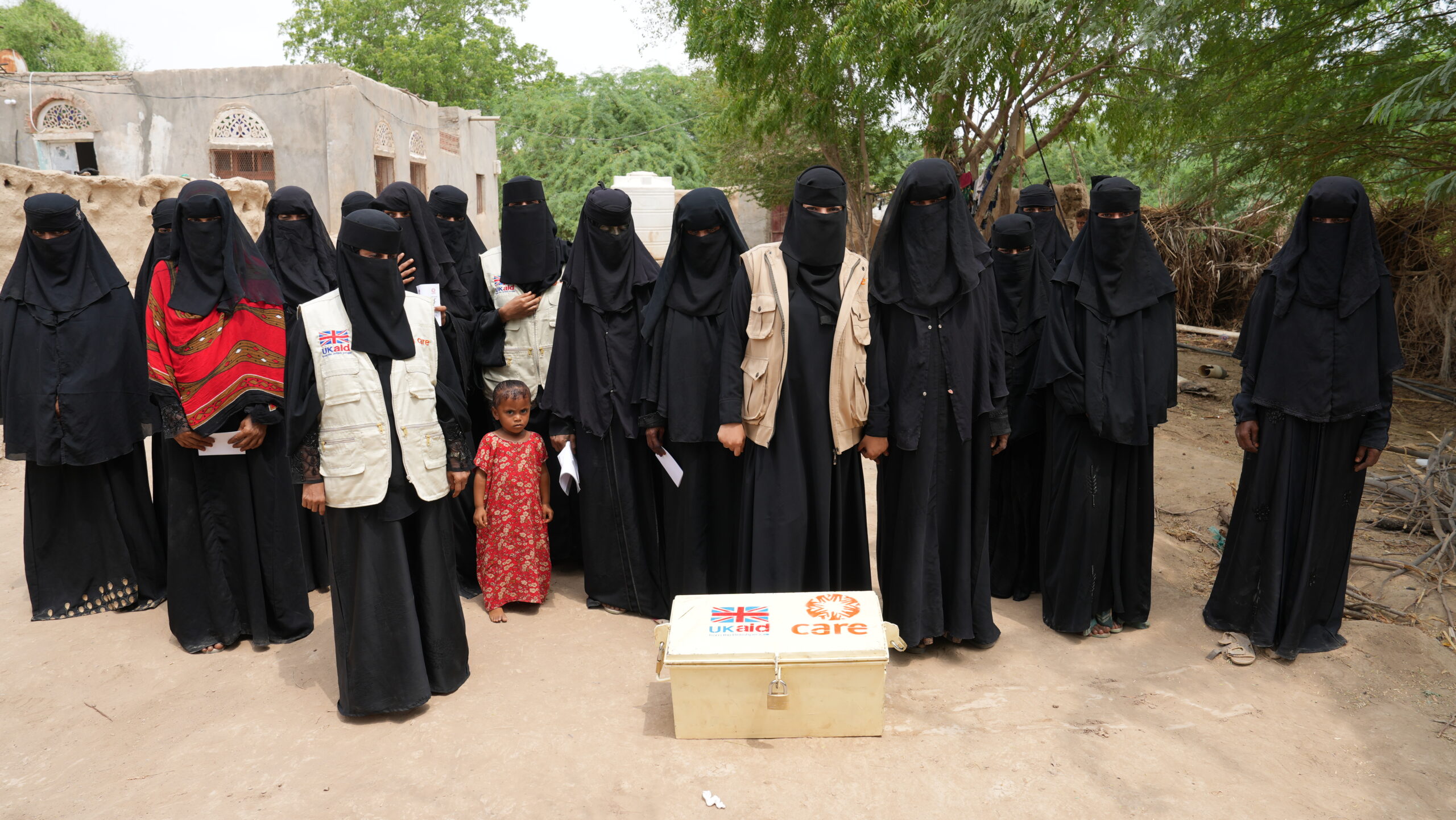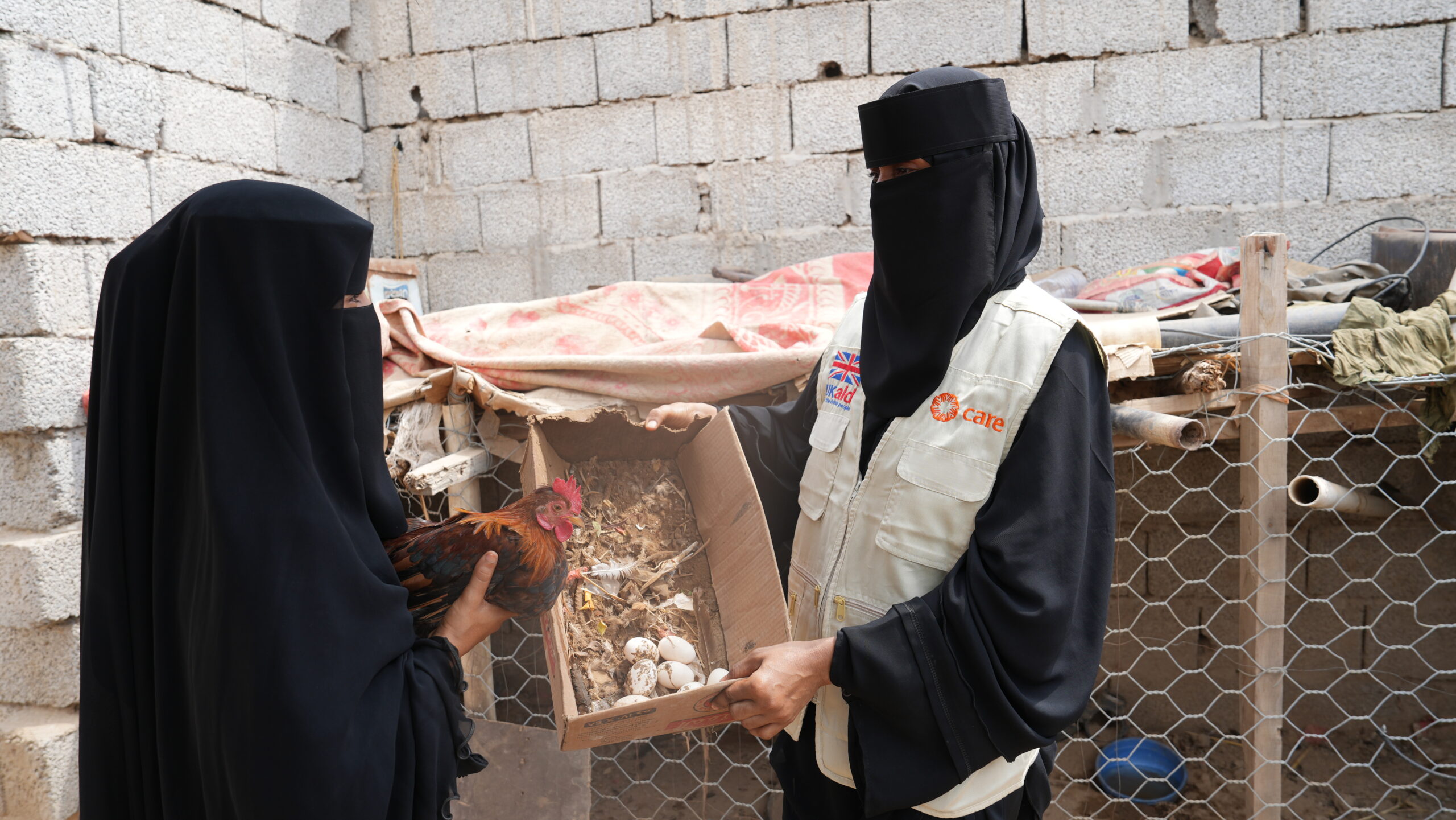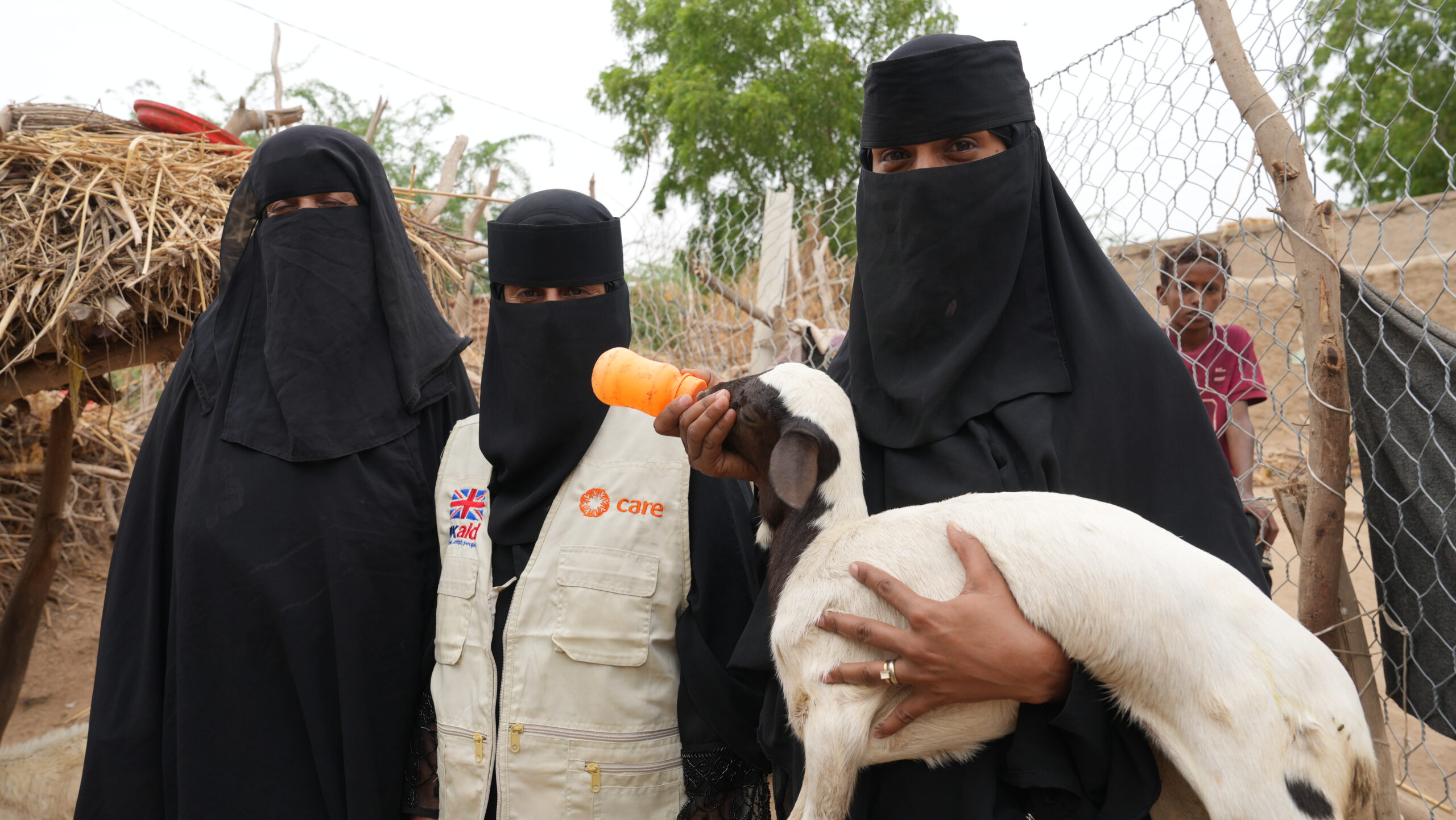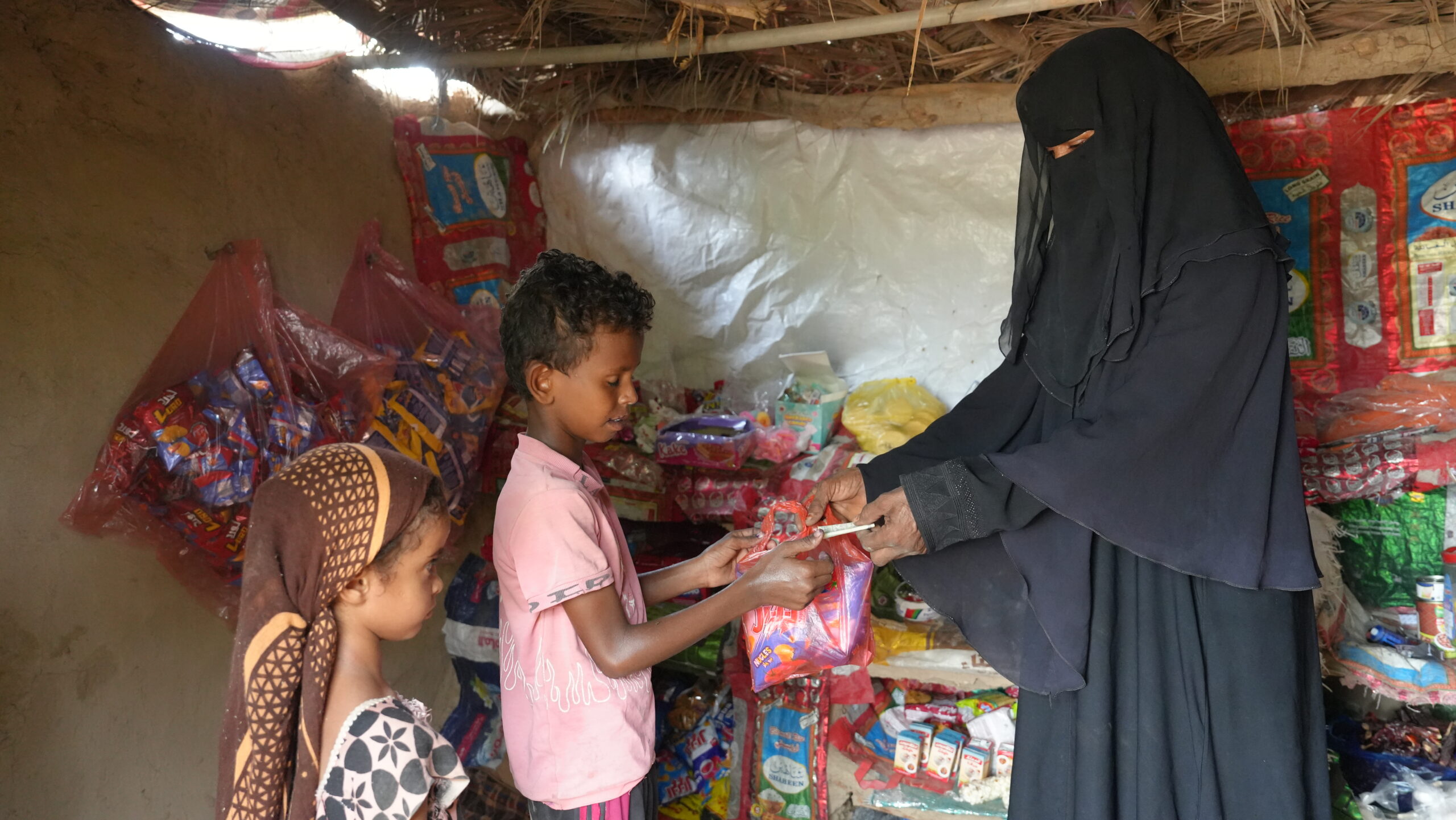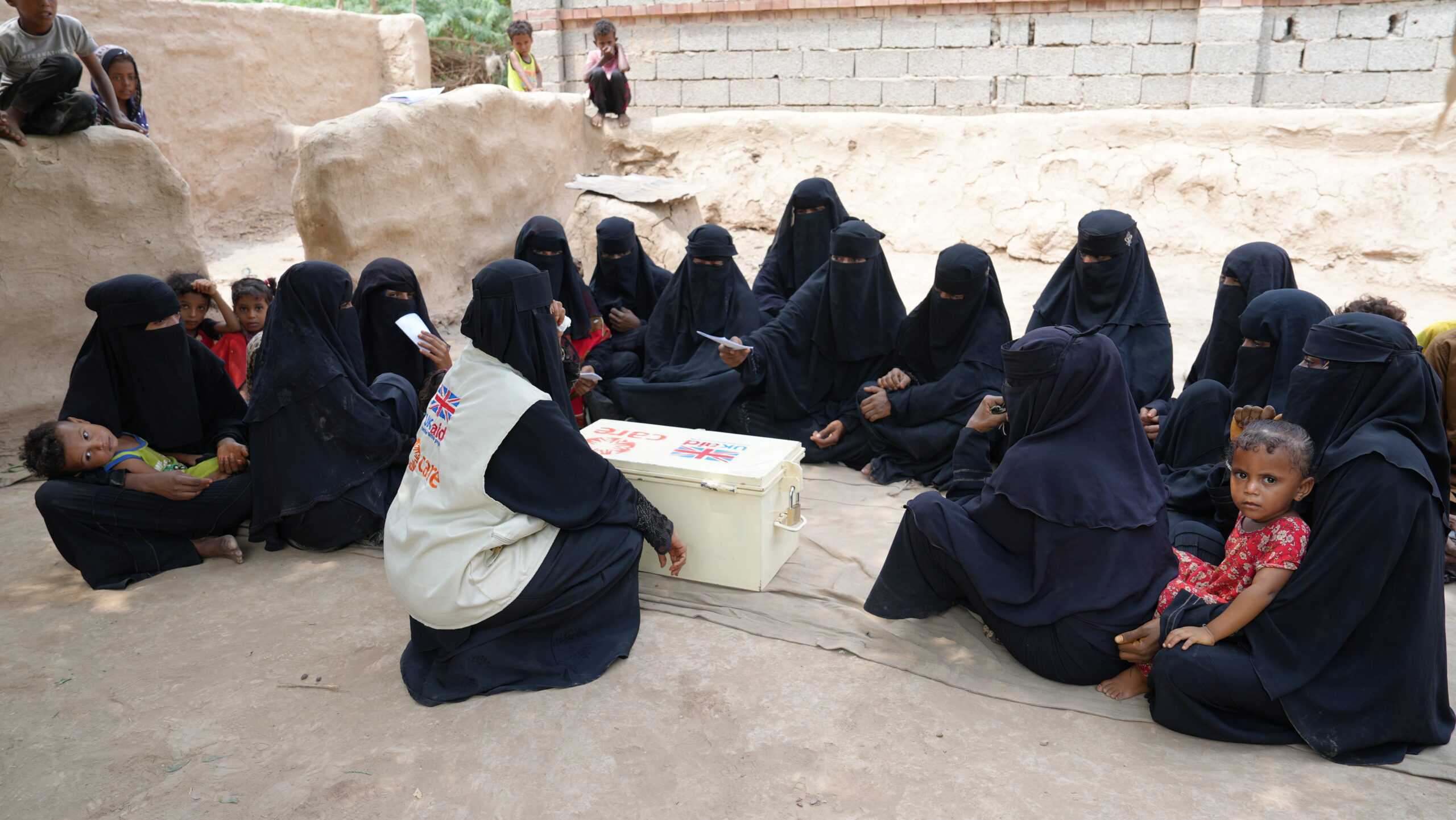Fatima, a mother of three, lives in Abyan Governorate in southern Yemen. Her life was once joyful, but everything changed when her husband lost his job.
“Our life was joyful and comfortable, but after my husband became unemployed, our circumstances deteriorated, and I had no choice but to make the very difficult decision to take my children out of school to save the little money we had for food,” says Fatima.
Yemen’s economy has been shattered by more than a decade of conflict, political fragmentation, and recurrent shocks. Today, 19.5 million people require humanitarian assistance and protection, including a large share of women and children, as conflict, economic collapse, climate shocks, and deteriorating basic services compound suffering and vulnerability. Women’s economic participation has long been severely limited; in rural areas especially, many work in informal, unpaid roles with little protection or income security.
With funding from UK Foreign, Commonwealth and Development Office (FCDO), CARE implemented the project, “Building Resilience through Integrated Transformation and Leadership of Community and Humanitarian Systems in Yemen (BRIGHTLY)”. Through this project, the Village Savings and Loan Association (VSLA) was set up and has flourished into a community-based initiative. It supports rural resilience and enhances the livelihoods of its members in the Ahwar and Khanfar districts of Yemen’s Abyan Governorate.
VSLAs are self-managed savings group, typically made up of 20 to 22 members from the same community, who meet regularly to save their money in a safe place and obtain small loans or insurance. In this case, any profits are divided equally among the original contributors. Today, there are 12 active Village Savings and Loan Associations (VSLAs) operating across the targeted districts of Ahwar in Abyan Governorate. These community-led groups have become a cornerstone of resilience for women like Fatima, Maryam, and Nour.
A combination of the training and the loan from savings groups enabled Fatima to purchase 10 local chickens to raise and sell their highly nutritious eggs.
“I decided to raise chickens to sell the eggs locally as they are in high demand bringing in a daily profit that supports me in procuring our daily needs and sending my children back to school,” says Fatima.
Maryam, another mother of two with an unemployed husband says “I participated in training sessions on savings mechanisms, loan management, small business operations, and marketing, which opened my eyes. I had no idea I could save this much and start a small business,” she says.
Maryam used her loan to buy eight sheep. Her flock soon grew to ten. She plans to sell some during the Eid holidays and uses the milk for her family, while selling the surplus to her neighbors.


